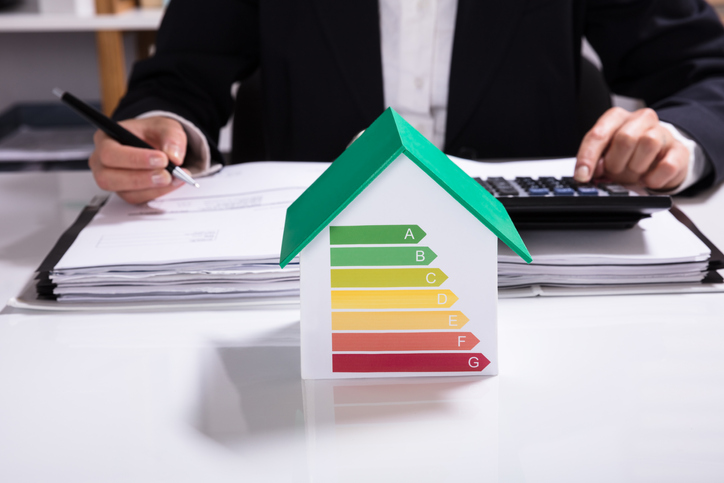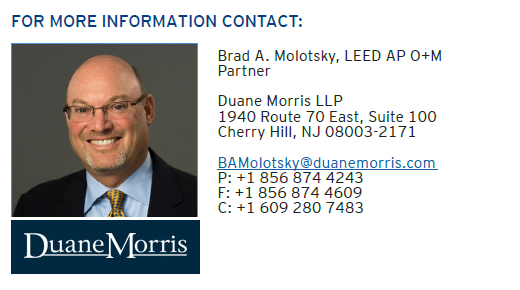 Philadelphia is recently adopted an energy efficiency tuneups requirement for buildings over 50,000 square feet. Beginning in 2021, under a new law adopted by City Council in November and signed by Mayor Jim Kenney on December 10, 2019, many commercial property owners in Philadelphia will be required to conduct energy efficiency tuneups in their buildings.
Philadelphia is recently adopted an energy efficiency tuneups requirement for buildings over 50,000 square feet. Beginning in 2021, under a new law adopted by City Council in November and signed by Mayor Jim Kenney on December 10, 2019, many commercial property owners in Philadelphia will be required to conduct energy efficiency tuneups in their buildings.
Download Printable Article (PDF) >>>
The law, Bill No. 190600, requires owners of all nonresidential buildings of 50,000 square feet or larger to either conduct a tuneup to bring existing building energy systems up to a state of good repair or submit a certification of high energy performance to the city’s Office of Sustainability. Approved unanimously by City Council on November 21, 2019, the new law has a stated goal to help cut citywide carbon emissions by 80 percent from 2006 levels by 2050, as well as an interim goal to cut carbon emissions by 25 percent from 2006 levels by 2025. According to numerous studies, energy efficiency tuneups should also produce energy consumption cost savings for building owners and their occupants who may be paying for the energy the building uses. Owners are advised to consult with energy efficiency professionals and to budget for the costs of the assessments and building systems adjustments. Moreover, landlords should seriously consider a review of their lease language to ensure that all parties are aware of and clear on who pays for the energy efficiency upgrades, tuneups and energy consumption at their applicable buildings.
Energy Efficiency Tuneups Requirement Placed in Context
Philadelphia’s move follows on the heels of actions taken by other large U.S. cities to reduce carbon emissions from commercial buildings, a trend that has accelerated in the wake of the Trump administration’s decision to withdraw from the Paris Climate Agreement.
Some cities have established policies that require building upgrades and improvements to achieve specified energy code levels and efficiency standards. By way of example, in April 2019, the New York City Council adopted a building emissions reduction mandate as part of its Climate Mobilization Act, requiring most buildings over 25,000 square feet to achieve emissions reduction benchmarks that are projected to produce a 40 percent overall cut in building emissions by 2030. Moreover, in December 2018, the Washington, D.C., City Council adopted a Building Energy Performance Standard as part of its Clean Energy DC Omnibus Act, requiring owners of buildings over 50,000 square feet to achieve minimum levels of energy efficiency, or improve upon existing efficiency levels, by 2026.
By contrast, Philadelphia’s tuneup requirement is a more modest step forward that should not impose significant costs upon building owners or their tenants to make affirmative energy efficiency improvements.
Philadelphia’s requirement is similar to a policy adopted by the Seattle City Council in March 2016, which requires commercial buildings 50,000 square feet or larger to go through tuneups every five years.
Details of the Efficiency Tuneups Requirement
Nonresidential buildings in Philadelphia that are 200,000 square feet or larger must submit tuneup reports to the Office of Sustainability no later than September 30, 2021. For buildings of at least 100,000 square feet and less than 200,000 square feet, the deadline is September 30, 2022. For buildings of at least 70,000 square feet and less than 100,000 square feet, the deadline is September 30, 2023. And for buildings between 50,000 square feet and 70,000 square feet, the deadline is September 30, 2024. Going forward, regularly scheduled tuneups must be performed no longer than every five years after the prior scheduled tuneup date.
Exemptions apply for buildings that already achieve high levels of energy efficiency. If a building has received a Certified Energy Star score of at least 75 within a year prior to the deadline, no tuneup is required. Alternatively, buildings receiving alternate certifications within three years of the deadline, such as Leadership in Energy and Environmental Design (LEED) Gold (or better) certification or Net-Zero Energy Certification from the International Living Future Institute, are also exempt. Note that there are other exemptions that also apply.
In order to comply with the policy, a qualified engineer or certified energy manager must examine the base building systems of the property that use energy or impact energy consumption, including “building envelope, the HVAC (heating ventilating and air conditioning) systems, conveying systems, domestic hot water systems and electrical lighting systems.” The specialist must produce a written inspection report setting forth findings and recommendations for each inspection element. Following the inspection, each building owner must take corrective action pursuant to the recommendations in the report.
FAILURE TO COMPLY WITH THE REQUIREMENTS CAN SUBJECT A BUILDING OWNER TO FINES AND PENALTIES.
Implications for Building Owners
The bill gives some leeway to the Office of Sustainability to establish regulations that further implement the City Council’s direction, including the qualifications that each tuneup specialist must possess and additional clarity on exemptions from the tuneup requirement.
In this vein, it would behoove commercial property owners in Philadelphia to begin to plan for these requirements now. If an energy efficiency specialist has not already examined the building, owners are advised to consider the retention of a specialist in 2020 and to begin the process of budgeting for the costs of conducting the tuneup and implementing the recommendations. This process will necessarily involve up-front costs. It is possible, and even likely in many cases, that the tuneup will produce savings in utilities expenditures that eventually repay the cost of the tuneup. However, because this process must be repeated every five years, owners should plan now for the possibility that future tuneups may not always pay for themselves and consider what impact their leases have on themselves and their occupants and on who pays for the energy and the upgrades.
For Further Information
If you have any questions about this Alert, please contact Brad A. Molotsky, David Amerikaner, any of the attorneys in the Real Estate Practice Group, attorneys in the Energy Industry Group, attorneys in the Project Development and P3 Group or the attorney in the firm with whom you are regularly in contact.
About Duane Morris
The attorneys at Duane Morris will continue to track this mandate in Philadelphia and related sustainability initiatives around the country that affect owners, tenants and investors in commercial real estate.
Disclaimer: This Alert has been prepared and published for informational purposes only and is not offered, nor should be construed, as legal advice. For more information, please see the firm’s full disclaimer.



